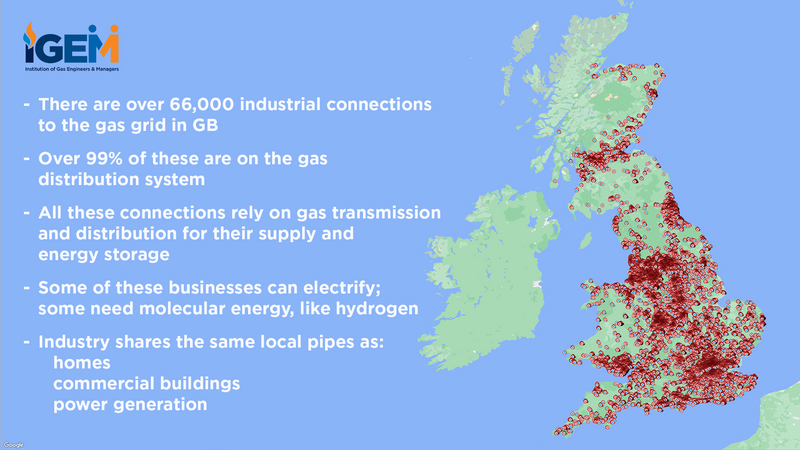Rethinking hydrogen's role in the UK’s net zero future: A call to protect the country’s industrial heartlands
"Achieving net zero means reaching into the lives of everyone – those with, and those without. Those most vulnerable to change stand to suffer if we don’t get it right". Oliver Lancaster, Chief Executive Officer of IGEM, the Institution of Gas Engineers & Managers, argues that this need not be the case.
As the UK marches towards a net zero future, the focus so far has largely been on broad strokes of policy and technology. However, nestled within these discussions lies a crucial yet often overlooked aspect: the fate of the communities that are inextricably linked to the UK’s gas grid.
The government is yet to make a final decision on the part hydrogen might play in a net zero future, but in the wake of some worrying signs from ministers and advisors, IGEM believes a serious re-evaluation of hydrogen's role in the UK's energy transition is not just a matter of environmental foresight but a crucial step in safeguarding the country’s most vulnerable communities.
The UK gas network, with 66,000 industrial connections, is more than a mere energy supply chain. It’s a lifeline for numerous heat-intensive industries like glass, cement and food production, which are deeply embedded within residential areas and not just conveniently clustered on the UK’s coasts. These industries, while crucial for the economy, are also integral to the social fabric of the communities they reside in. Their ability to survive the energy transition has profound implications, not just industrially but socially and economically.

The government's current push towards electrification, particularly in domestic heating, seemingly overlooks a critical aspect: the integrated nature of industrial and domestic heat within the gas network. Many of those making decisions on our energy system of the future don’t seem to understand what demands there are for energy in different places. Denying these industries the gas supplies they need to operate could lead to socio-economic consequences reminiscent of the devastating effect of deindustrialisation in the 70s and 80s – effects which are still being felt today.
Hydrogen presents itself as a beacon of hope in this complex scenario. It offers a potential path for decarbonising industrial processes without dismantling the existing gas infrastructure and the communities that dependent on it.
New research from IGEM illustrates the eye-opening reality: industry is connected to every part of the gas network, entwining the destinies of businesses and residential communities. The fact that people tend to live and work in the same area should be fairly obvious, with industry, commercial buildings, power stations and homes all sharing the same pipes that have been built for over 200 years. If we want to keep industry going and transition away from natural gas to cleaner fuel sources, then a lot of these organisations are going to need hydrogen.
The current policy emphasis on electrification, backed up by the National Infrastructure Commission’s most recent report, raises concerns. This shift risks marginalising UK manufacturing and the people who rely on the gas network for not just their home heating but for their jobs too. The report’s proposal to decommission the gas distribution system without a viable alternative for millions of people and over 99% of industrial connections is alarming. As Jon Butterworth, Chief Executive of National Gas, has stated: industry needs providing with the opportunity to convert to hydrogen should they not be able to electrify.
Abandoning businesses in our communities wouldn’t mean they simply move many miles to where they can get the energy they need. The reality is they’d close up, leaving decimated towns in their wake and HM Treasury tax receipts with a worrying shortfall.
It’s time for the UK government to reconsider its stance and scale of ambition regarding hydrogen. The argument isn't just about environmental sustainability; it’s about social responsibility and economic pragmatism. The integration of hydrogen into the UK’s energy mix offers a more inclusive approach to reaching net zero, one that acknowledges and protects ordinary people within our society.
As the UK forges ahead in its quest for a sustainable future, it must not overlook the human element in its energy policies. The strategic importance of hydrogen in safeguarding the UK’s industrial heartlands while achieving environmental goals, is undeniable.
The transition to net zero should be a journey that uplifts and protects all, particularly those in the shadow of industrial change. This is not just an environmental imperative but a moral one. The role for hydrogen isn’t a question around which sector should get it, but rather what sectors could use it across a thriving economy.
